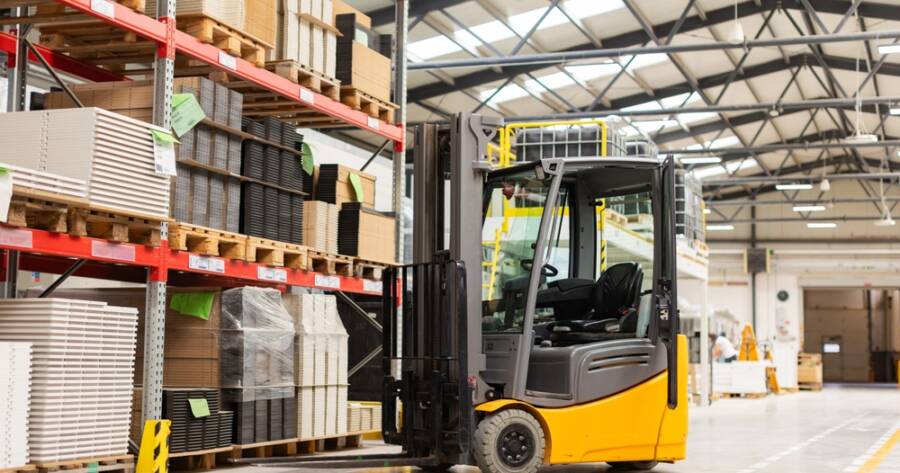Forklift jobs are crucial in industries like warehousing, construction, and manufacturing. These positions offer great opportunities for individuals looking to work in fast-paced, hands-on environments. With a forklift operator job, you will be responsible for safely operating heavy machinery, moving goods, and supporting efficient operations. Understanding the job’s requirements, potential salary, and necessary certifications will help you decide if it’s the right career path for you.
Forklift Job Duties: What You’ll Do on the Job
Forklift operators play a vital role in maintaining the efficiency of warehouse and construction operations. Their main responsibilities include loading and unloading materials, organizing shipments, and ensuring that inventory is tracked accurately. A forklift operator also moves goods from one place to another, often in tight or hazardous conditions, and may be responsible for labeling and sorting items.
In addition to these tasks, forklift operators are sometimes required to handle hazardous waste materials, maintain the safety of their work environment, and ensure proper storage. The ability to operate other machinery, like winches and hoists, is often essential, ensuring that workers can manage a variety of lifting and transport needs.
Forklift Job Salary: How Much Can You Expect to Earn?
The salary for forklift drivers varies depending on experience, location, and skill level. On average, forklift operators in the U.S. make $17.84 per hour, or about $37,000 annually. Entry-level operators may earn around $16.35 per hour, while experienced drivers can make upwards of $19.23 per hour, potentially reaching over $22.00 with higher skill levels or overtime.
While forklift driving is an entry-level job, there are opportunities to increase earnings by advancing to higher positions within warehouse or construction management. Additionally, operators in regions with a higher cost of living or in specialized industries may find that they earn more than the national average.
Forklift Certification: What You Need to Get Started
To operate a forklift legally and safely, individuals must complete a forklift certification program approved by OSHA (Occupational Safety and Health Administration). This training is essential to ensure safety on the job and to comply with federal regulations. Certification courses typically involve both practical and theoretical instruction, covering how to safely operate various types of forklifts, including electric motor trucks and rough terrain vehicles.
The certification process takes about two hours and is often offered online, allowing potential operators to train at their own pace. Upon completion, you’ll receive a forklift certification card, which is required by law for anyone operating powered industrial trucks. Forklift certification is mandatory for all workers who operate these machines, and it must be renewed every few years.
Forklift Job Career Paths: What Are Your Options?
Forklift jobs offer several career paths depending on an individual’s interests and experience. Starting as a forklift operator, many workers progress to supervisory or management positions in warehouse or distribution centers. Those with a strong understanding of warehouse logistics may choose to specialize in inventory management or become warehouse managers.
Additionally, forklift operators can advance into roles like safety managers or equipment trainers, helping others learn how to safely operate forklifts. With additional training or certifications, forklift operators may also transition into other construction or logistics roles, expanding their career opportunities and earning potential.
Why Forklift Jobs Matter: The Importance of Skilled Operators
Forklift jobs are crucial to ensuring that goods and materials are transported safely and efficiently. Skilled forklift operators contribute significantly to workplace safety by preventing accidents and improving workflow. Their role in organizing and managing inventory is essential for maintaining productivity, particularly in warehouses, construction sites, and manufacturing facilities.
Choosing a job as a forklift operator offers a stable career path with ample opportunities for advancement. As industries continue to rely on efficient logistics and warehouse management, the demand for trained forklift operators is expected to remain strong, making this a worthwhile career choice for individuals looking for steady work and the chance to progress.
Moving Forward in Your Forklift Career
Forklift jobs provide a stable foundation for a long-term career in a variety of industries. Whether you’re just starting or looking to advance in warehouse or construction management, the demand for skilled operators continues to grow. With proper training, certification, and dedication, you can develop a fulfilling and well-paying career. As the logistics industry evolves, opportunities for growth and specialization in areas like inventory management and safety will continue to open up, making forklift operation a great career choice for many.

